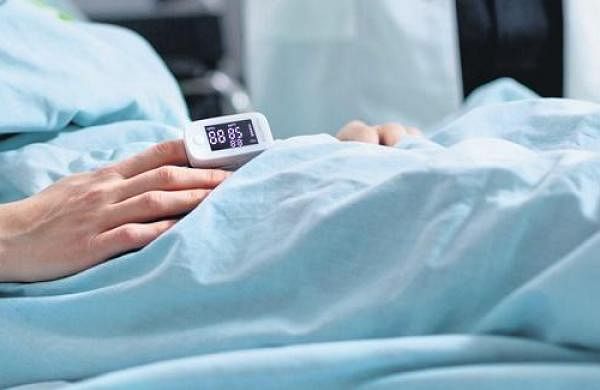Infection
Antimicrobial resistance: Challenges in preventing hospital infections
Express News Service
BENGALURU: A study in 2022 highlighted the high prevalence of healthcare-associated infection (HAI) and antimicrobial resistance (AMR), resulting in increased morbidity and mortality rates among citizens.
The Lancet study found that HAI and AMR are interconnected and observed high levels of both in Indian tertiary hospitals. Infections that one develop while undergoing treatment at a healthcare facility are called HAI, mainly caused due to poor hygiene or infection control practices.
According to the World Health Organisation (WHO) findings, AMR causes an estimated five million deaths every year globally, with projections suggesting a rise to 10 million by 2050. Extensive use of antibiotics, both in healthcare and agriculture, has caused an escalation in the spread of drug-resistant organisms, leading to ineffective treatment of infections and increased mortality.
There are four types of HAIs – catheter-associated urinary tract infections (infections caused while inserting a catheter), central line-associated bloodstream infections (infection caused while inserting a central line, a tube put in the neck or chest for medication), surgical site infections (this can happen in the body after surgery) and ventilator-associated pneumonia (lung infection while being on a ventilator). All these infections, however, are mostly avoidable.
The Lancet study reviewed 26 hospitals in 20 states and union territories that reported bloodstream infection and UTI surveillance data for at least one month to the network between May 1, 2017, and Oct 31, 2018. Most hospitals reviewed (65%) were in the public sector. The high HAI has also resulted in spread of drug-resistant infections within hospital premises and outside communities.
“Vigilance and appropriate treatments are essential, considering risk factors such as excessive antibiotic use, hospitalisation and chronic conditions. Treatment options are limited and require tailored antibiotic therapy based on susceptibility testing,” Dr Ranga Reddy, president of Infection Control Academy of India, said.
In a global landscape with heightened medical complexities, including transplants and immunosuppressive therapies which expose patients to increased infection risks, the looming threat of AMR amplifies the urgency owing to economic repercussions and potential strain on healthcare systems.
Over-the-counter accessibility and limited awareness compound the problem. “Overuse and misuse have led to a decline in antibiotic effectiveness, with pharmaceuticals showing reluctance to invest in new antibiotics. Hospitals should take the lead in prescribing accurate antibiotic dosages, preventing cross-patient infections and implementing stewardship for effective management,” Dipu TS, associate professor, division of infectious diseases, department of internal medicine, said.
Patients can safeguard against AMR by following prescribed antibiotic courses, avoiding self-medication and maintaining good hygiene practices. “The misuse of antibiotics leads to bacterial resistance, while the pharmaceutical industry’s lack of focus on new antibiotics complicates the problem. In 2021, India alone reported 100,000 cases of antibiotic-resistant organisms. These cases span across various bacterial infections, indicating widespread resistance,” experts added.
“Patients who consider the internet to be a ‘know it all’ and do not prefer seeking medical advice, but instead take medicines based on an old prescription or do not complete the full medication course once they start feeling better, become high risk for recurring infections with evolving drug resistance,” said Dr Aditya S Chowti, senior consultant, internal medicine, Fortis Hospitals, Bengaluru. Indiscriminate use of antibiotics for infections not requiring one has also led to rise in AMR. Dr Chowti added that a protocol must be put in place for every antibiotic dosage prescribed within hospitals and an infection committee must be formed to study different patient case studies and observe any emerging patterns.
Although AMR was considered an urban phenomenon, it has trickled down to the rural areas now. All healthcare professionals are advised to be watchful of the marketing tactics used by pharmaceutical companies and not get swayed to prescribe them for monetary benefits.
A recent international study by Cambridge University found the prevalence of AMR in urine, blood and wound pathogens in people of rural Karnataka. “The irrational use of antibiotics increased over time in the urban areas which has now transferred to rural areas. Over-prescription of antibiotics by the doctors has resulted in this prevalence,” Sumana Mahadevaiah, a researcher part of the study and microbiology professor at JSS Medical College, said. Dr Bindumathi PL, senior consultant, internal medicine, Aster CMI Hospital, Bengaluru, said AMR has resulted in prolonged illnesses among patients, resulting in longer stays in hospitals.
It is crucial to have infection specialists within hospitals to study all patients and ensure that over prescription of antibiotics is avoided from the doctor’s end and patients are advised to seek medical advice before mindlessly consuming them.
Implementing nationwide measures to curtail the overall consumption of antibiotics emerges as a critical step in the battle against AMR. “Integrating the One Health concept into discussions on antimicrobial resistance (AMR) is pivotal, acknowledging the interconnectedness of human, animal and environmental health. Various campaigns, such as the Blue Light campaign and WAAW campaign, are integral parts of AMR week, emphasizing the importance of awareness in addressing this global issue. Healthcare professionals play a key role by educating patients on antibiotic use, implementing stewardship programmes, and advocating for policies supporting AMR control,” Dr R Krishna Kumar, HOD, Pediatric Cardiology, Amrita Hospital, Kochi, said
Key practices include rational antibiotic prescribing, infection control measures, public education on antibiotic use and improving sanitation and hygiene. Strengthening surveillance systems, promoting antibiotic stewardship, investing in new antibiotic development, and fostering global collaboration are essential strategies, highlighting the necessity of centralized policies to curb antibiotic misuse and abuse across sectors.
During the AMR Awareness Week, observed from November 18-24, the government and hospitals are making efforts to train doctors and nurses making them aware of possible ways of infections spreading within hospitals and regularly maintaining hand hygiene.
Follow The New Indian Express channel on WhatsApp

